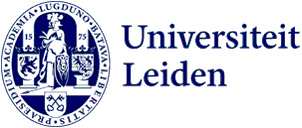
Quinten Meertens nominated for Christiaan Huygens Science Prize 2021
Is it acceptable for an algorithm to make mistakes? Quinten Meertens investigated this at Leiden University and the UvA and has been nominated with his research for the prestigious Christiaan Huygens Science Prize. The winner will be announced on 11 October. In April, Meertens received his doctorate for his research into the use of algorithms for official statistics, such as those produced by the Central Bureau of Statistics (CBS). 'The problem with algorithms, for whatever application, is that they make mistakes,' says Meertens.
Making mistakes is allowed
Scientists are doing a lot of research into reducing these errors. Meertens: 'The core of my thesis, however, is that making mistakes is allowed. At least, if you use algorithms to say something about groups and not about individuals. Because with groups, it's all about the average or the total, and it turns out that algorithms that make mistakes every now and then can also make very good estimates.'

Van ontbossing tot COVID-19 meten
From deforestation to COVID-19 measurement
In practice, Meertens' research has an impact on a variety of applications. Examples include measuring deforestation in the Amazon and melting of the polar ice caps based on satellite photographs. Even in quantifying the spread of COVID-19, his research is important. 'A PCR test, like an algorithm, can sometimes make a mistake. If a test contains too little genetic material, a test result can be wrongly negative. Conversely, in a few cases, a PCR test can erroneously give a positive result. The total number of positive test results can therefore deviate from the number of people tested who actually have COVID-19 because of these two types of errors. The methods from my dissertation can correct that deviation.'
Meertens received his doctorate from the Leiden Institute for Advanced Computer Science and the Faculty of Economics and Business at the UvA and now leads the team within CBS that produces statistics on legal protection and safety in the Netherlands. His responsibilities include innovation within CBS, in which he always seeks cooperation with science.
Read a summary of the thesis ‘Misclassification Bias in Statistical Learning’ here.
The prize
Every year, the KNAW awards the Christiaan Huygens Science Prize to a young researcher who has made an innovative contribution to science. The prize consists of a tax-free cash prize of ten thousand euros, a bronze statue of Christiaan Huygens and a certificate. Previously, FWN researchers Chris Smiet (2019), Adrian Hamers (2018) and Bernard van Heck (2016) won the prestigious prize.
